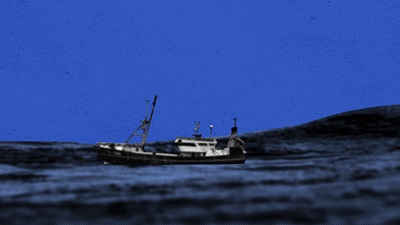The ocean is also a vital source of food for billions of people and supports livelihoods in communities worldwide.
However, the health of the ocean is in decline. Technological advancements have made nearly every inch of the world’s marine waters increasingly accessible and vulnerable to extractive activities, including large-scale fishing, energy development and deep-sea mining. Habitat destruction caused by human activities is further compounded by the impacts of a changing climate.
These cumulative threats cannot be tackled by any nation nor any sector alone, and gaps in global ocean governance can be addressed effectively only through international cooperation. Since the ocean is an interconnected natural system governed by a patchwork of domestic and international policies and bodies, countries must work together to manage and safeguard the marine environment.
The Pew Charitable Trusts is working closely with governments, key stakeholders and partner organizations to develop policies – and policy mechanisms – to minimize harm to the ocean while ensuring that it continues to provide for humankind.
The ocean governance project combines Pew’s efforts to:
- Implement and improve the World Trade Organization’s fisheries subsidies agreement.
- Secure and advance the United Nations high seas treaty.
- Secure and further execute the Convention on Biological Diversity’s target to protect 30% of global land and marine areas by 2030.
- Engage with the International Seabed Authority to ensure that deep-sea mining is prohibited unless effective protection of the marine environment can be assured.

Despite continued negotiations in 2024, the regulatory framework meant to govern commercial-scale deep-sea mining is still years from being finalized by members of the International Seabed Authority (ISA), the United Nations-affiliated body tasked with governing the mineral resources of the ocean floor in international waters.

La Organización Mundial del Comercio (OMC) adoptó un largamente esperado acuerdo sobre las subvenciones a la pesca en junio de 2022 al finalizar su 12. Conferencia Ministerial.

El 20 de septiembre de 2023, las Naciones Unidas (ONU) abrieron su nuevo acuerdo sobre la conservación y el uso sostenible de la biodiversidad marina fuera de las jurisdicciones nacionales, también conocido por sus siglas en inglés como tratado BBNJ o tratado de altamar, para su firma y ratificación.

After adopting a landmark agreement in June 2022 to curtail harmful fisheries subsidies, the World Trade Organization (WTO) now must finish the job by ensuring that the deal is ratified and completing the negotiations on key unresolved issues not addressed in the 2022 agreement.

Did you know that only 1% of the high seas have legal protections? Learn more about safeguarding this vital international ecosystem with the marine protected areas tool from Pew.







